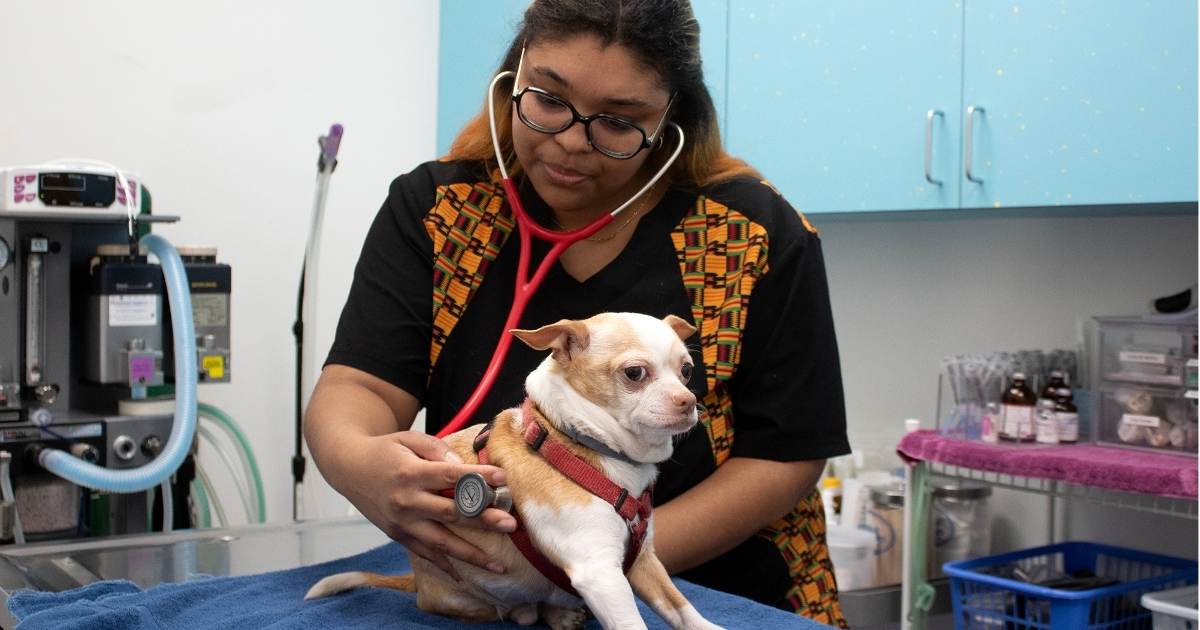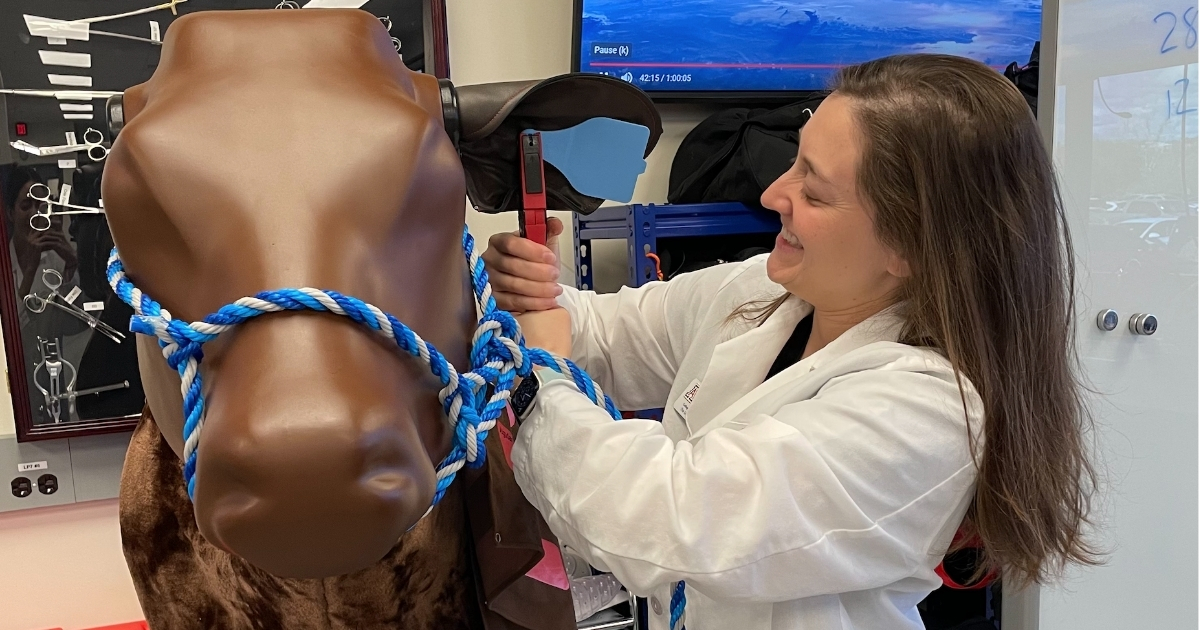
Non-thesis M.S. in Animal Science (Veterinary Biosciences, Biotechnology, and One Health Concentration)

Non-thesis M.S. in Animal Science
Veterinary Biosciences, Biotechnology, and One Health Concentration
Our program provides students with theoretical, technical, and practical training relevant to advancing career opportunities in animal science. This program is ideal for recent graduates aiming to expand their knowledge and experience base prior to entering into a professional degree program or the workforce. We also welcome returning students looking to advance their careers.
The program can be completed in one year as a full-time student or approximately two years as a part-time student. Students work with their advisor to develop an individualized plan of study. Many graduates of the program continue to veterinary school; others enter skilled positions in animal or human health industries.
Jump to: Admissions Requirements | Application Deadlines | Curriculum | Cost of Attendance

Admissions requirements
Competitive applicants demonstrate an ability to thrive in this advanced training program. This includes:
- an undergraduate degree in animal science, biology, or a related field,
- an undergraduate GPA of 3.0 or greater, and
- strong letters of support from three recommenders.
View specific application and admission requirements through the application portal on the Graduate Admissions website.
Alumni spotlight


Application deadlines
Applications are considered on a continuing basis to allow for admittance in the fall, spring, or summer semesters.
Fall semester
- June 1 (international applicants)
- Aug. 1 (U.S. citizens)
Spring semester
- Dec. 15 (international applicants)
- Jan. 15 (U.S. citizens)
Summer semester
- April 1 (international applicants)
- May 1 (U.S. citizens)

Curriculum
This degree provides students with a strong theoretical foundation in veterinary biosciences, biotechnology, and One Health, practical experience with advanced molecular biology techniques, statistical skills, and research experience.
To accomplish this, students complete 30 credits of graduate coursework that include:
9 credits of coursework in host-pathogen interactions;
6 credits of coursework in nutrition and immunology;
9 credits of technical and practical training that provides real-world, hands-on skills;
3 credits of coursework related to statistical analysis of biological data; and
3 credit individualized research experience in a faculty member’s laboratory.
Complete degree requirements and course options can be found in the graduate catalog.

Cost of attendance
There are no scholarships or financial aid available for this degree program. The program requires 30 credits of coursework at a current cost of $1,028 per credit hour.
Most students are employed either full-time or part-time while completing the program. Due to the hands-on nature of the training, most courses are in-person and require students to live in or near Newark, Delaware.
The University of Delaware’s Graduate College website includes a variety of resources for prospective students, including estimates of the costs of attendance for graduate school.
